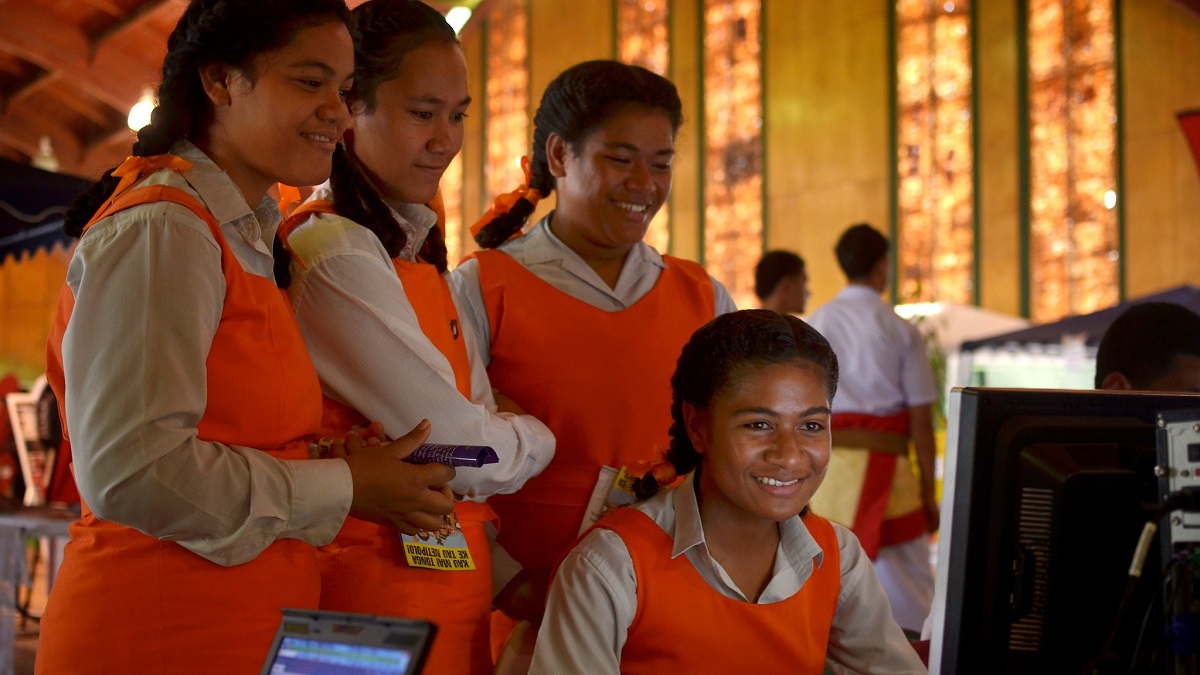A new study by UN Trade and Development (UNCTAD) reveals critical gaps in the Pacific’s cyberlaw landscape, urging swift reforms to unlock the region’s digital potential.

© World Bank/Tom Perry | University students in Tonga enjoy high-speed internet.
Pacific nations urged to reform laws for a safer digital future.
Fragmented legal frameworks limit trust and digital trade.
Progress in cybercrime legislation but major gaps in data protection.
New UNCTAD report offers a roadmap for legal harmonisation.
Launched in the last week of April in Suva, Fiji, the study entitled “Gap Analysis of Cyberlaws in Pacific Small Island Developing States” offers the first comprehensive review of legal frameworks essential for safe, inclusive and trustworthy digital transformation in the Pacific. The launch event was co-hosted with the Pacific Islands Forum Secretariat (PIFS).
Stronger legal foundations urgently needed
As digital adoption accelerates across the Pacific, the report stresses that fragmented and outdated laws are holding back progress. Comprehensive and harmonised frameworks covering electronic transactions, data protection, cybersecurity and consumer protection are urgently needed to build digital trust and fully leverage development opportunities.
Reviewing 15 jurisdictions, including Timor-Leste, the study examines more than 11 key legal areas vital to e-commerce and digital development. It proposes a practical roadmap for reform, complementing the Pacific Regional E-commerce Strategy and Roadmap led by PIFS, which prioritises legal and regulatory upgrades as key to boosting digital trade and cooperation.
Key challenges and emerging progress
Most Pacific nations still lack a comprehensive legal base for digital trade, and protections for data privacy and online consumer rights remain among the least developed. No Pacific small island developing states currently has a full data protection law in force. Meanwhile, informal e-commerce, especially through social media platforms, is expanding without adequate legal oversight, exposing consumers and businesses to risks.
There has been encouraging progress on cybercrime legislation, with many countries adopting or drafting laws with international support. Tonga, for instance, has acceded to the Budapest Convention on Cybercrime.
The study also highlights the need for greater regional harmonisation and better coordination among development partners to accelerate reforms. Timor-Leste’s recent adoption of laws on electronic transactions and digital signatures, aligned with international standards, is a positive sign, alongside Vanuatu’s and Samoa’s advances in data protection and digital ID legislation.
A call to action for a digital Pacific
“This report comes at a time when digital transformation is growing fast across the Pacific,” said Torbjörn Fredriksson, head of UN Trade and Development’s E-commerce and Digital Economy Programme. “Strengthening legal readiness is essential. Without clear rules and protections, the region risks falling behind.”
Representatives from governments, the private sector, development agencies and civil society took part in the launch event.
The study was funded by the Government of Australia and developed under the Pacific Digital Economy Programme, a joint initiative with the UN Capital Development Fund and the UN Development Programme, supported by Australia, New Zealand and the European Union.


